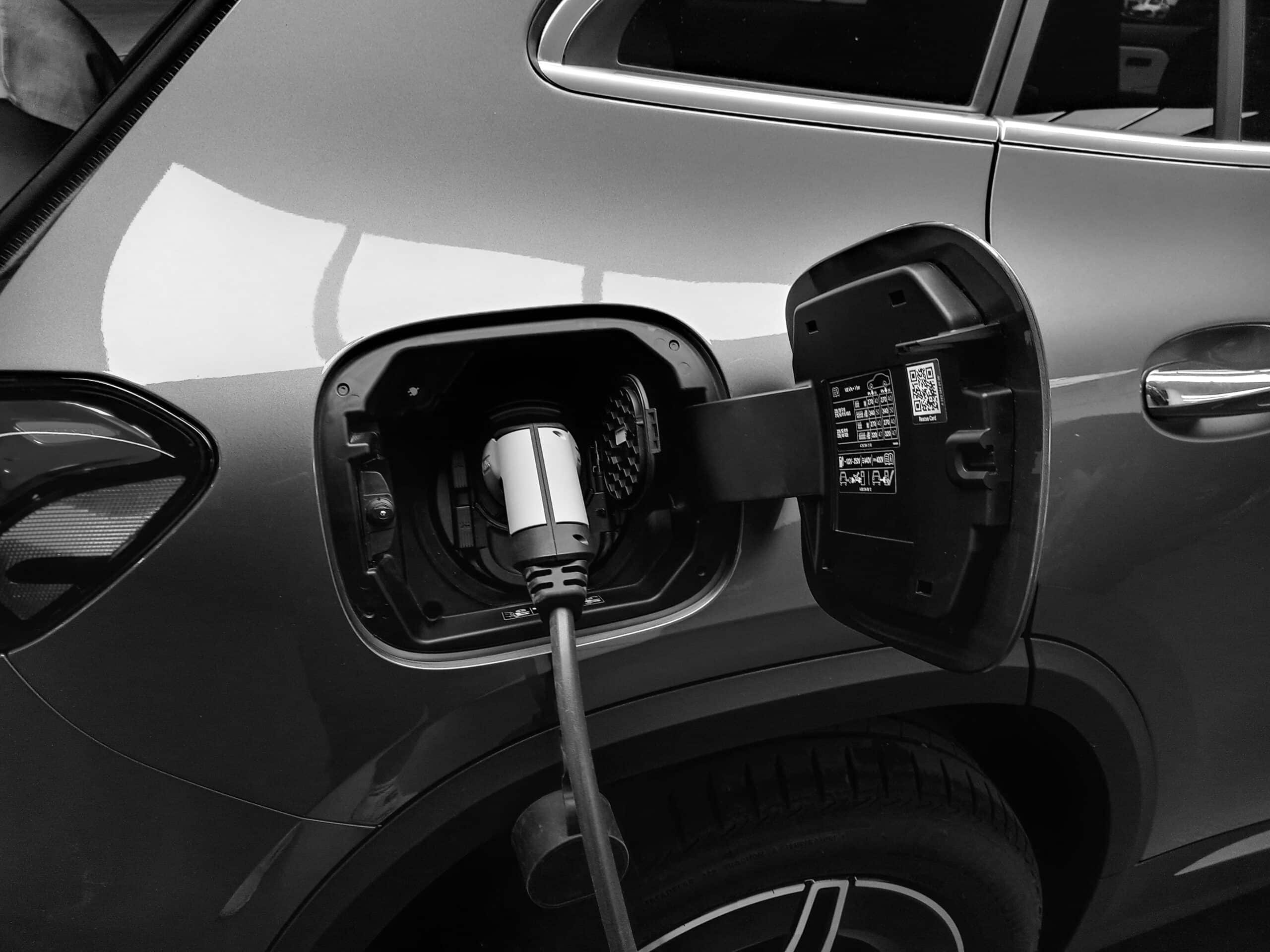Have you just bought an electric vehicle and are ready to take it out on the road? Whether you’re looking for an energy-efficient vehicle for your daily commute or long road trips, you may be curious about how long it takes to charge an electric car before you can take it out for a spin.
More than ever, people are concerned about the environment, and electric vehicles are a good solution for some of the current problems. These vehicles don’t produce carbon dioxide while driving, which contributes to reducing pollution. This makes our cities better for people by improving the air quality.
Also, with the rising cost of fossil fuels, driving a diesel or gasoline engine car will become increasingly expensive. An electric vehicle will allow you to save money, too.
Let’s dive into what you need to know about charging an EV at home, how their batteries work, and what impacts the overall battery life of your new ride.
How Long Does It Take to Charge an EV?
The general range is 30 minutes to 12 hours. Several factors, such as battery size and charging rate can speed up or slow down charging. The most accessible types of chargers are best used when charging your car overnight since they work the slowest. Mid-tier EV chargers can take a few hours, and the fastest chargers can fill up your battery in 60 minutes or less.
A Few Things to Keep in Mind
So far, we’ve given you a general time frame for how long to charge an electric car. You should know these numbers are approximate and can vary. Several factors affect charging time: Battery size, battery level, charge rate, and temperature. Let’s explore some of these factors below.
Battery Size
The battery capacity directly links to the charging time. Larger-capacity batteries will take longer to fill up than smaller batteries. Depending on the type of EVs you’re researching, you may choose to use a larger battery to accommodate more driving time.
Battery Level
How much battery power do you have left? Is it 80 percent? Fifty percent? Zero percent? Battery level is a factor you must consider when figuring out how long it will take to charge your car.
You can decrease charging time by utilizing the top-up method. This method avoids letting the battery drain completely. Instead, you recharge the battery when it reaches a certain level, e.g., 50%. This approach can reduce charging time and get you back on the road sooner.
Charge Rate
The charge rate or charge level is perhaps one of the most significant factors to consider when determining how long it takes to charge an electric car. EVs have three charging levels: level 1, level 2, and level 3. The higher your charging level, the faster your car will charge.
Level 1
Level 1 chargers are the most common and accessible charging option because it allows you to plug your EV directly into your home’s wall outlet. This charging option is the easiest and most convenient way to charge your electric car, which is a huge benefit.
However, it may not be the most practical because it could take days to charge your car fully. With a level 1 charger, your battery charges 3 to 5 miles of range per hour. For example, if you travel 90 miles, it will take approximately 18 to 30 hours to replenish your battery. Like other charging options for electric vehicles, an electrician is required to install one safely.
Level 2
Level 2 chargers are typically found in commercial or public charging stations. They offer faster-charging speeds than level 1 but are slower than DC chargers. A level 2 charger can take anywhere from three to ten hours, depending on the type of charger.
A level 2 charger is great for a home because you won’t have to budget your time as strictly to make sure your car has enough charge for the day. Level 2 charger installation requires an electrician like Heritage Home Service to install.
Level 3
Level 3 charging, known as DC charging, is the best option for those looking to get their electric car back on the road as quickly as possible. This is why you see level 3 chargers on highways, at truck stops, and in parking lots at your grocery store. These commercial and industrial settings can handle the power output and energy requirements needed to charge EVs much faster than level 1 or 2 chargers. They can charge your EV in as little as an hour.
While some DIYers have attempted to install level 3 chargers at home, it’s impractical. They’re expensive, require specific electrical equipment to work properly, and cause your electric bills to skyrocket. We do not recommend you install a level 3 charger, or any electric charger, at home for your vehicle. Upgrades to your electrical panel will be required to handle the 240V plugs required for fast charging.
Weather
How’s the weather in your area? Did you know the weather can impact your electric car’s charging time? Hot and cold weather can affect your battery’s efficiency – just like it impacts other types of batteries. The temperature can also increase charging times, especially on extremely hot or cold days.
Your Vehicle
There are three types of electric cars available on the market today. Each comes with its own charging rate.
Battery Electric Vehicle (BEV) or All Electric Vehicle (AEV)
BEVs are fully electric vehicles that use a battery to power the vehicle. BEVs have a charging time of 4 to 10 hours to 20 to 50 hours, depending on the charge.
Plug-In Hybrid Electric Vehicles (PHEV)
With a significantly faster-charging speed than BEVs, PHEVs can charge in 1 to 2 hours. This type of EV uses fuel and electricity as a power source.
Hybrid Electric Vehicles (HEV)
The HEV is fueled by an internal combustion engine and one or more electric motors. The vehicle is operated by gas to drive the internal combustion engine, and the battery is recharged using the regenerative braking system, not by plugging in.
You Can Charge Your Electric Car at Home
Want to make sure your electric car is always adequately charged? Why not have a charger installed at your home? While this may require high upfront costs, an efficient home charging station is a must-have for many EV owners.
Here are some additional benefits of an at-home charging station:
- More affordable over the long run
- Better for the battery
- Predictable and dependable
Ready to Charge Your Electric Car at Home?
Get in touch with us to get all the comfort of charging your EV from home. Heritage can take care of the installation of a charger for your electric vehicle.
$50 OFF
ANY Repair*
Must be over $200 value.
SCHEDULE NOWCannot be combined with other offers or discounts. Expires 7/31/25

Financing Made Easy
When you choose Heritage, you can rest easy knowing that we provide straightforward options to help you budget for a complete solution that will last you for decades to come.
VIEW FINANCING OPTIONS
Complete Care Plan
With Complete Care, enjoy peace of mind knowing your home's plumbing, heating, cooling, and electrical needs are handled year after year—hassle-free, with added benefits.
VIEW PLAN







